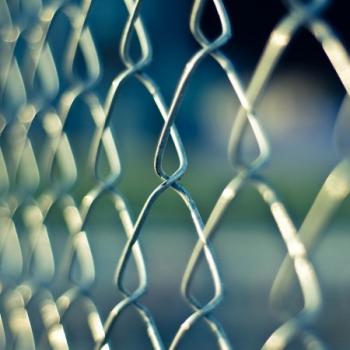For the past few weeks on Sunday mornings, and with a couple more to come, I have been bringing messages about the epic battle between good and evil. The big question, “How do we learn to discern between the two?”
One would think it would be easy. But real evil has developed the genius to disguise itself with exquisite care and craftiness and often passes as something good and desirable.
This Sunday, June 16, we’re going to look at the character of Severus Snape–a man who had to walk on both sides of the street. How did it affect his soul? How did he protect himself while spending so much time with the dark side?
Unfortunately, too many religious practices appear to have crossed over to real evil
Recently, I came across a blog written by a highly educated Muslim woman and long-time resident of the United States. She had been forced into an unwanted marriage by her dictator father and beaten-down mother.
The woman wrote, “So I sat crying with my best friend in my hotel bathroom on the day of my wedding, up until the makeup artist showed up to turn me into a happy bride. And I pulled it off beautifully. I was a happy, beaming bride –and every single member of my family, young and old, grandma and aunts and cousins and uncles, even the wedding dress seamstress pinning me into my dress during the dress rehearsal while I cried, knew I was in love with another man, and that I did not want this marriage.”
The situation horrified me–as it did many other readers. This woman faced staggering coercion. Her father locked in her room, took away her passport, and beat her and shamed her.
Readers asked, “Why didn’t she just leave?”
Answer: “Because in my religion and my culture, women just don’t. They live at home until they marry. And they must have their father’s approval for the person they marry.”
She was 28 years old, had an earned doctorate, and was completely under the control of her tyrannical, verbally and physically abusive father. He called upon his religion as justification for his actions.
Her mother wanted to divorce her father shortly after the marriage, but either could not for religious reasons or did not have the courage and family support to do so. After years of being beaten down by this man, and informed by her religious upbringing, she participated in the mistreatment of her grown daughter.
Another illustration: a young Christian woman has been repeatedly sexually violated. The woman has been told that it is her responsibility as a Christian to forgive and to receive the sacrament of Holy Communion in the same space as her violator.
She writes, “When I express discomfort about calling a rapist my “brother in Christ,” people accuse me of being a bitter, grace-hating person. When I say that I can’t get over the hurt my abuser caused me, people tell me to get over my ‘perpetual victimhood.’ When I ask for a safe space, people tell me I’m acting like the exclusionary fundamentalists, and that I need to learn that Christianity isn’t about being comfortable.”
I have days when I have seen so much of this that I want to walk away from the work I love. It has been so tainted with this kind of behavior.
So, will this ever stop?
Nope. Been with us from the beginning. There have always been masters and slaves. There have always been those who had the power to whip, beat, violate and destroy those who are weaker.
Often, religious practices become another tool in the arsenal of destruction for this kind of power. The institutions themselves are abusive, have crossed over to evil, and have justified their actions by appeal to their interpretations of textual authority and the nature and decrees of God.
It won’t stop. BUT . . . we can learn the difference. Any system or person that uses institutional power or individual privilege to strip another human being of dignity has just crossed over, no matter how well they have justified it. This is the bottom line.












